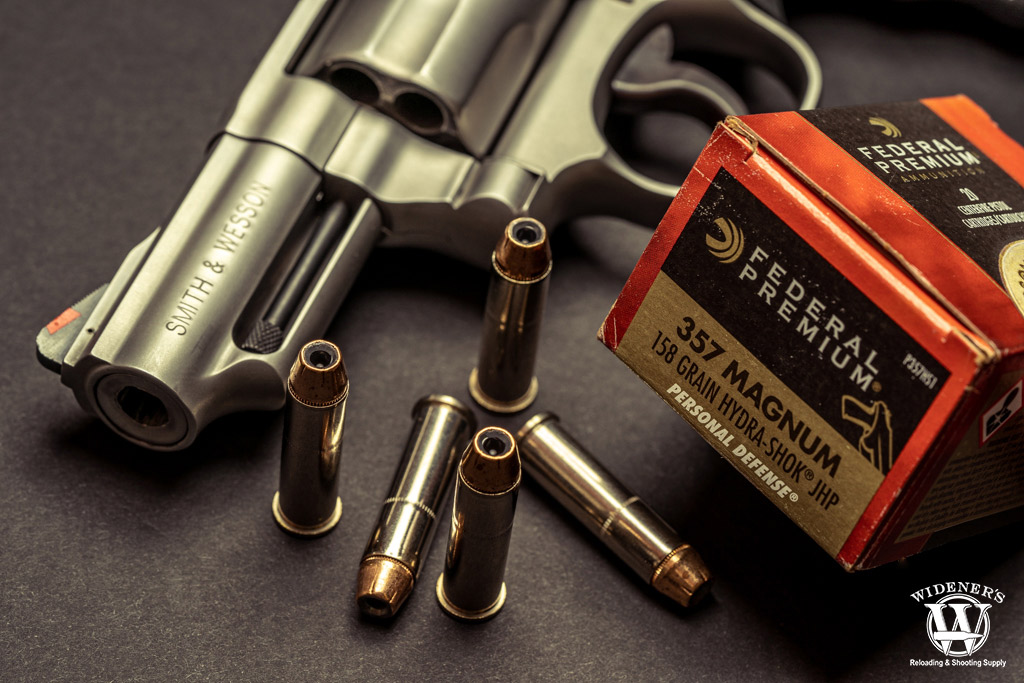
Bullet weight is a critical component in the accuracy and performance of a firearm. The critical role it plays can be somewhat confusing for new shooters. Armed with a few simple facts you may be surprised how a few quick experiments during your next range session can bring out more of your firearm’s hidden potential.
We’re lucky. These days, reloading is no longer mandatory. It wasn’t long ago, if you wanted a specific load, you had to essentially make it yourself. Today, there’s no shortage of factory-loaded cartridges offering different weight bullets—with identical or nearly identical shapes and designs—available for sale. Widener’s offers a huge selection and, to help newcomers dial better into the options, we’ll start with a brief refresher on interpreting the information printed on commercially available ammunition.
More @ Widener's

If you are a serious shooter you need to reload. I have 3 9mm pistols. They all perform fair with factory match grade bullets. My 1911 will have a 4" pattern at 25 yards. I am shooting just over a 2" pattern with coated lead 125gr SWC that I have tuned the right powder with the right bullet to get the best out of that Gun. I also have a PT92AF INOX and those "tuned" SWC bullets perform as well as factory loads. The INOX likes a 124gr JHP that is in the +P range. That JHP shoots about the same as factory in the 1911. The Glock 26 likes light mouse fart loads and I had to re-spring it to get it to cycle. The G26 is wildly inaccurate with fast and/or heavy bullets.
ReplyDeleteRight now I am trying to find an optimum load for a S&W model 65 .357 Mag.
Thanks for the information.
Delete